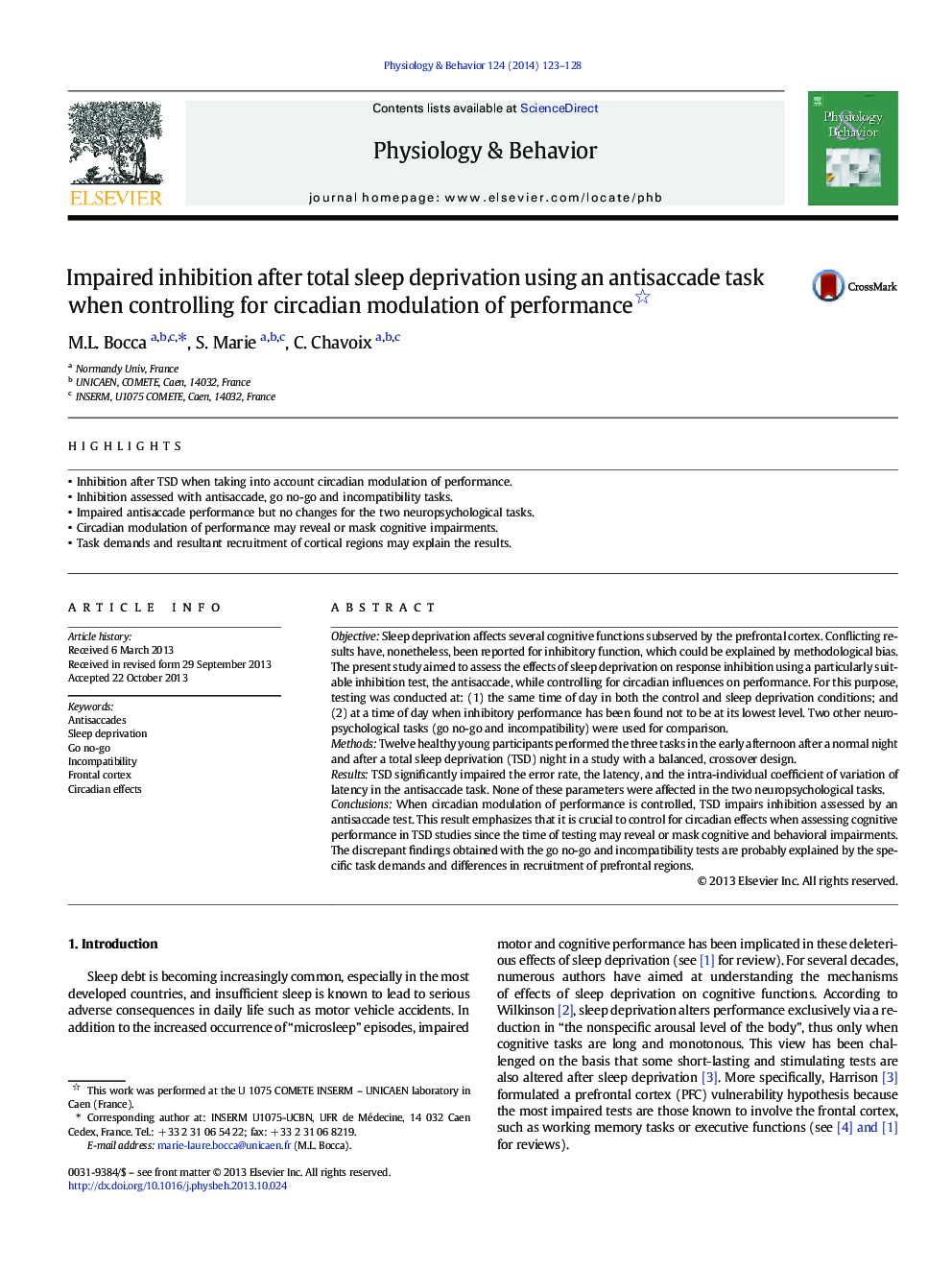| کد مقاله | کد نشریه | سال انتشار | مقاله انگلیسی | نسخه تمام متن |
|---|---|---|---|---|
| 5924532 | 1571193 | 2014 | 6 صفحه PDF | دانلود رایگان |
- Inhibition after TSD when taking into account circadian modulation of performance.
- Inhibition assessed with antisaccade, go no-go and incompatibility tasks.
- Impaired antisaccade performance but no changes for the two neuropsychological tasks.
- Circadian modulation of performance may reveal or mask cognitive impairments.
- Task demands and resultant recruitment of cortical regions may explain the results.
ObjectiveSleep deprivation affects several cognitive functions subserved by the prefrontal cortex. Conflicting results have, nonetheless, been reported for inhibitory function, which could be explained by methodological bias. The present study aimed to assess the effects of sleep deprivation on response inhibition using a particularly suitable inhibition test, the antisaccade, while controlling for circadian influences on performance. For this purpose, testing was conducted at: (1) the same time of day in both the control and sleep deprivation conditions; and (2) at a time of day when inhibitory performance has been found not to be at its lowest level. Two other neuropsychological tasks (go no-go and incompatibility) were used for comparison.MethodsTwelve healthy young participants performed the three tasks in the early afternoon after a normal night and after a total sleep deprivation (TSD) night in a study with a balanced, crossover design.ResultsTSD significantly impaired the error rate, the latency, and the intra-individual coefficient of variation of latency in the antisaccade task. None of these parameters were affected in the two neuropsychological tasks.ConclusionsWhen circadian modulation of performance is controlled, TSD impairs inhibition assessed by an antisaccade test. This result emphasizes that it is crucial to control for circadian effects when assessing cognitive performance in TSD studies since the time of testing may reveal or mask cognitive and behavioral impairments. The discrepant findings obtained with the go no-go and incompatibility tests are probably explained by the specific task demands and differences in recruitment of prefrontal regions.
Journal: Physiology & Behavior - Volume 124, 30 January 2014, Pages 123-128
